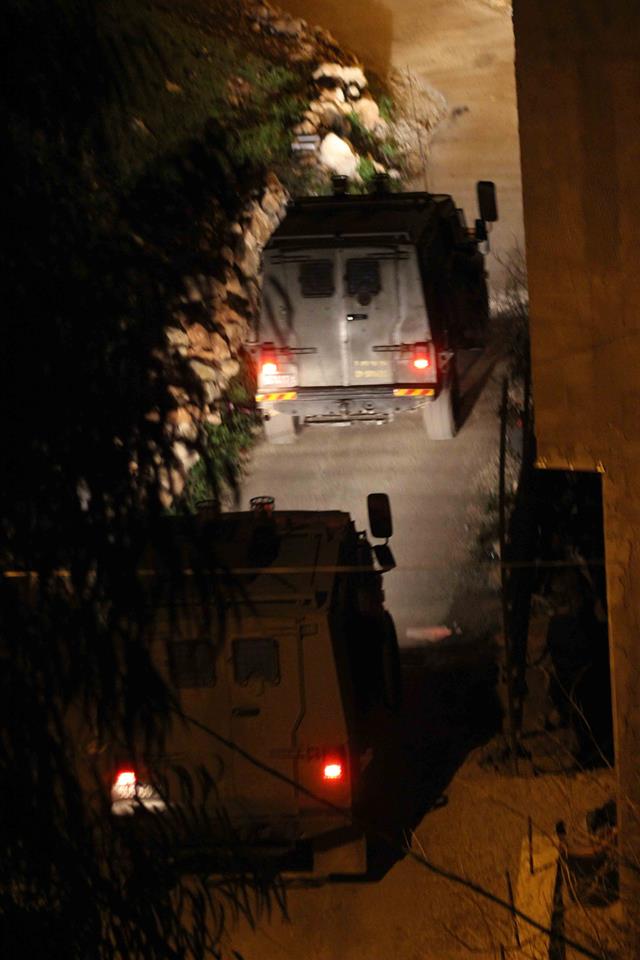Category: Nablus
-
17 years old arrested at school in Al Sawiya
5th March 2014 | International Solidarity Movement, Team Nablus | Al Sawiya, Occupied Palestine On Monday March 3rd, in the early afternoon, Obada Muhammad Saleh, a 17 years old Palestinian was arrested by the Israeli Forces in his school in Al Sawiya. Around 1pm last Monday, was school children were leaving Al Sawiya’s school, ten…
-
Nightraid in Madama village
3rd March 2014| International Solidarity Movement, Nablus Team| Madama, Occupied Palestine Last morning, early on Monday March 3rd, around 100 Israeli soldiers raided the village of Madama, south of Nablus, breaking in houses and detaining 15 people. All of the detainees were released later the same night. The Israeli forces entered the village around 2am and invaded…
-

Night raid and arrests in Kafr Qaddum
20th February 2014 | International Solidarity Movement, Nablus Team | Kafr Qaddum, Occupied Palestine On Thursday the 20th of February, the violent arrests of seven villagers occurred early in the morning in the village of Kafr Qaddum. Four of those arrested, including the coordinator of the weekly demonstration, were released after six hours. The three…
